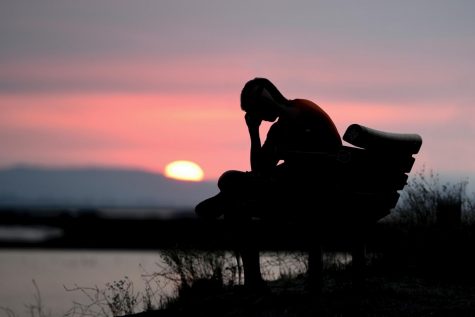Managing Mental Health During the Pandemic
November 11, 2020
From the beginning of the COVID-19 pandemic, researchers have emphasized that the best way to avoid the virus and “flatten the curve” is by distancing ourselves from others and limiting our time in public places. While this is certainly wise advice for maintaining physical health, what does it mean for everyone’s mental well-being? After all, long periods of social isolation have been linked to depression, stress, substance abuse and other psychological issues. But rest assured, there are plenty of solid strategies for promoting positive mental and emotional health that continue to be viable during these chaotic times.

Exercise and Outside time
By now, everyone has heard it — exercise releases endorphins. Fortunately, staying active while sticking to social distancing guidelines can be done with ease. Jogging, biking and even online workout classes are all great ways to boost your fitness and elevate your mood without going to the gym. For those who dislike strenuous exercise, something as simple as taking a walk in nature and/or spending a few extra minutes outside also does wonders for mental health.
Yoga and Meditation
Like more traditional forms of exercise, yoga yields more than just physical benefits. In fact, those who partake in the ancient practice regularly may experience improved sleep quality, healthier eating habits, lower stress levels and even relief from depression and anxiety symptoms. Even if your local studio is temporarily closed, many instructors have continued to livestream their classes for everyone to enjoy from the safety of their home.
Another stress-relief strategy gaining traction in recent years is meditation. With similar mental and physical benefits as yoga, dedicating a mere 30 minutes to mindful meditation every so often improves one’s ability to stay in the present and not be rattled by present anxieties.
Stay as connected as possible
Just because people are physically separated right now, socializing can still be done in a COVID-friendly manner. Programs like Facetime, Zoom and Skype offer digital platforms to connect with others that feel more personal than a simple text message or phone call. On top of that, multiplayer video games like Among us and Minecraft have only grown in popularity throughout the six month quarantine. Of course, limiting one’s daily electronic use is still important, however, spending a couple harmless hours per week playing with friends can be a great distraction from external stress.
Resources
As mentioned before, medical professionals have thoroughly researched all of these strategies and their effectiveness for mental health. That being said, for those who find themselves severely struggling, they are no replacement for seeking support. At Madison, students can reach out counselors, psychologists and social workers for any personal matter. Outside the Warhawk community, mental health resources are all the more available. From online therapy to crisis lines operating around the clock, no one should have to face their demons alone.


